
-01 -12 2024-
First Sunday of Advent – Year C
The Advent spirit is a time of waiting and longing for the Lord –
and our call to holiness

Gospel Text: Luke 21:25-28, 34-36
vs.25 Jesus said to his disciples:
“There will be signs in the sun and moon and stars; on earth nations in agony, |
bewildered by the clamour of the ocean and its waves;
vs.26 men dying of fear as they await what menaces the world, for the powers of heaven will be shaken.
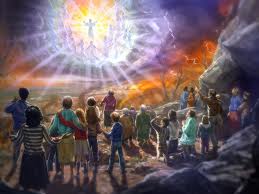 vs.27 And then they will see the Son of Man coming in a cloud with power and great glory.
vs.27 And then they will see the Son of Man coming in a cloud with power and great glory.
vs.28 When these things begin to take place, stand erect, hold your heads high, because your liberation is near at hand.”
vs.34 Watch yourselves, or your hearts will be coarsened with debauchery and drunkenness and the cares of life, and that day will be sprung on you suddenly, like a trap.
vs.35 For it will come down on every living man on the face of the earth.
vs.36 Stay awake, praying at all times for the strength to survive all that is going to happen, and to stand with confidence before the Son of Man.”
*******************************************************
We have four commentators available from whom you may wish to choose .
Michel DeVerteuil : Holy Ghost Priest, director of the Centre of Biblical renewal, Trinidad W.I.
Thomas O’Loughlin: Prof of Historical Theology University of Nottingham NG7 2RD
Sean Goan: Studied scripture in Rome, Jerusalem and Chicago and teaches at Blackrock College, Dublin and the Le Chéile School.
Donal Neary SJ: Editor of The Sacred Heart Messenger and National Director of The Apostlship of Prayer.
****************************************
Michel DeVerteuil
Lectio Divina with the Sunday Gospels Year C
www.columba.ie
Textual Comments
The gospel readings for Advent each year invite us to meditate on the mystery of waiting, and they do it by presenting us with stories of great people who knew how to wait. On the first Sunday, Jesus himself is the model as he taught his followers the spirituality of “waiting in joyful hope”.
The passage is clearly in two sections, verses 25 to 28, and verses 34 to 36.
You must interpret verses 25 to 28 in the light of your experience, times when your world or the world of your family or community collapsed. Allow the dramatic language to express this experience, making sure that you recognise the double movement of collapse and rebirth.
If you decide to meditate on verses 34 to 36, the key will be to identify concretely the meaning of “that day”, a time like the one in verses 25 to 28. Then you will get a feel for the teaching of Jesus.
Scriptural Reflection
Lord, great tragedies befall us from time to time:
* we lose our job;
* a spouse proves unfaithful;
* we discover that one of our children is on drugs;
* we fall into a sin we thought we had overcome.
These are moments of great distress. It is as if the sun and moon and stars are no longer there in the heavens. We feel as if we are drowning, the ocean and its clamorous waves overwhelming us. The powers of heaven have been shaken and we are dying of fear as we await the future which menaces us.
But, somehow or other, that moment, terrible as it is, brings its own grace:
* we find we have more courage than we thought;
* our family finds a new unity;
* we forgive a long-standing hurt.
Jesus comes into our lives with power and great glory. We have learnt now that we need never panic.
When these things begin to take place, we can stand erect, hold our heads high, because a moment of grace and liberation is at hand.
Lord, we thank you for the times when oppressed people can stand erect
and hold their heads high because a moment of liberation is near at hand.
“After one time, is two time.” …Old Trinidad saying
Lord, at one point in our lives we felt that good times would never end.
We lived mindlessly, looking down on others who were less successful or less virtuous.
We thank you for bringing us to our senses:
~we fell sick;
~ we fell into a sin we thought we would never commit;
~ one of our children got into trouble with the law.
~or we ourselves get in trouble with the law
~ we begin to feel our age catching up with us.
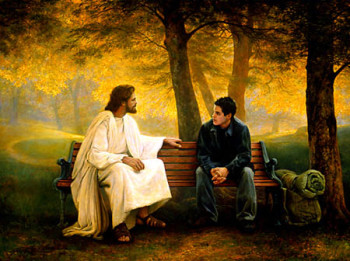 It was Jesus warning us to watch ourselves,
It was Jesus warning us to watch ourselves,
and reminding us that the day of reckoning is always sprung on us like a trap, for it comes down on every living person and every institution on the face of the earth.
Lord, make us aware of how our minds have been coarsened by over-indulgence or being too much engrossed by the cares of this life.
We know that what counts in life is to be able to stand with confidence before the Son of Man. Have we been mostly givers or takers.
*************************************
Thomas O’Loughlin
Liturgical Resources for the Year of Matthew
www.columba.ie
Introduction to the Celebration
Today we begin Advent. This is the period when we
1.) prepare to celebrate the coming of the Christ among us two millennia ago, but we also believe
2.) that he is coming among us again now and so we have to prepare to receive him, and
3.) know that he will come again at the end of time and we have to prepare the world for his coming.
So let us reflect on how it is because he first came that we are here at the Eucharist today; gathered now we ask pardon of our sins that we might be prepared for his second coming in this Eucharist; and as a community let us pray that we will be ready to stand before him when he comes again in glory.
1. On this first Sunday of Advent the church’s thoughts are concentrated not on the coming of the Lord in Palestine two millennia ago, nor even in the new liturgical year starting today, but on the Second Coming at ‘the end of time‘. What do we mean by this curious phrase: ‘the end of time’?
2. Approaching this theme in a homily presents three difficulties.
Firstly, it can easily be heard as ‘apocalypticism’. That is, it seems to the hearers that there is a direct link between some breakdown in the world order now (either in the social order, the realm of justice, peace, or some vague threat from a monstrous other) and God’s action of punishing or letting everyone get what they deserve.
In this scenario, everything going wrong is actually a bizarre proof that Christians are right and that the more disastrous things get the more it shows that God is in charge for he has already written the script. An example of this is the position of many American fundamentalists on the problems of climate change: no use doing anything about it, it is part of God’s plan to punish the world for not being ‘saved’.
Such ideas are far from the perspective of most Catholics, but there has been an enormous growth in Catholic apocalypticism since the 1980s and many people in any average congregation will be disposed to hearing today’s gospel, and any talk about the end times, in such millenarian terms. It is significant that the two sections of the discourse that are most explicitly part of the apocalyptic tradition are omitted today:
clearly, apocalypticism has no place in Advent preaching.
3. Secondly, there is a danger that speaking about the end times is not about the consummation of the universe, but a finger wagging exercise about the religious equivalent of what some cosmologists call the ‘Great Crunch‘. Whatever we say about the the end times must be clearly part of God’s plan. Hence it is part of God’s loving plan for the universe and so must be appreciably part of the good news. There has been a curious double think about this: God is love, but if you don’t love, then God holds a stick! Such presentations are necessarily false: the coming to completion of the creation, the kingdom, is the completion of God’s loving plan. It must be presented as analogous to the end of year party, not the end of term exams!
4. Thirdly, there are few areas of our faith where we know less, where our language is more strained, and where our images are less precise. Ironically, the fact that there is so little we can say about the ‘Consummation‘ has actually left a gap which imagination has filled to overflowing, and not always with a profound outcome.
 5. Here is a possible approach to the question. The ‘End of the World’ has two meanings.
5. Here is a possible approach to the question. The ‘End of the World’ has two meanings.
Firstly there is the very obvious one of the cosmos coming to an end or the whole created order being radically transformed by God.
The second meaning of the end of the world is the end of the world that I as an individual inhabit: my world will come to an end at my death.
In regard to the first meaning we have no information whatsoever within revelation as to when the universe will cease (this is a point worth making as there have been, and still are, many who engage in ‘scriptural mathematics‘ using the Book of Daniel and the Apocalypse of John to find out how long more the world has got!).
On the second meaning of the end of the world, my death, we are in a different situation: I may not know the day nor the hour (and am glad that I do not know this), but I am certain that I am going to die. Whatever happens in the future of my life, good things or bad things, I know that it will end. That end will be my end time, my eschaton.
6. Whichever meaning we use, there is a common feature: at The End we must not imagine a giant chasm, but the figure of the Logos who shares a human nature with all approaching him as their priest, prophet, and king. Christ as King stands at the end of time gathering all the fragments of each of our lives, and of the life of the whole cosmos, and refashioning that existence so that nothing is lost. He gathers and refashions our life so that as a new creation this existence, my life, can be presented to the Father.
7. The Good News is that the end is not a crunch, but the glorious figure of the Lord.
8. The end is the gathering of all the little pieces of our scattered and fragmented lives,
~ all our joys,
~all our collaborations with the grace of God,
~all the goodness we have sought to create,
~the peace we have fostered,
~the reconciliation that we have sought,
~the acts of kindness and mercy,
~the attempts to witness to the truth in the face of falsehood or injustice.
~All these scattered actions are gathered into a new existence that the Christ can offer to the Father in the Spirit.
9. The word ‘End’ is a word with many sad connotations for us:
~the end of a relationship,
~the end of a film or a moment of enjoyment,
~the pain that is a common part of the ending of a life.
We look forward to the consummation, the completion of the universe; Thus can we read in the gospel: ‘then [we] will see the Son of Man coming in a cloud with power and great glory. Now when these things begin to take place, look up and raise your heads, because your redemption is drawing near’ (Lk 21:27-8).
**********************************
Sean Goan
Let the reader understand
www.columba.ie
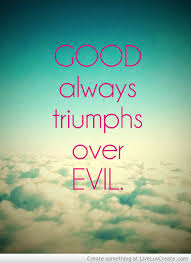 This gospel passage is taken from a chapter dealing with both the medium and long term future for believers in which Jesus recognises that although he has come to bring freedom and peace, that does not mean there will be an immediate end to violence and suffering. The language is that of apocalyptic which is a type of writing aimed at encouraging people to believe in God’s ultimate victory, the triumph of good over evil. By the time that Luke’s gospel was written, people were wondering when would Jesus return and how would they know. Here they are reminded that the key thing is not to he able to tell the future but to be faithful to the way of Jesus, especially a prayerful way of reflecting on the times we live in.
This gospel passage is taken from a chapter dealing with both the medium and long term future for believers in which Jesus recognises that although he has come to bring freedom and peace, that does not mean there will be an immediate end to violence and suffering. The language is that of apocalyptic which is a type of writing aimed at encouraging people to believe in God’s ultimate victory, the triumph of good over evil. By the time that Luke’s gospel was written, people were wondering when would Jesus return and how would they know. Here they are reminded that the key thing is not to he able to tell the future but to be faithful to the way of Jesus, especially a prayerful way of reflecting on the times we live in.
Reflection
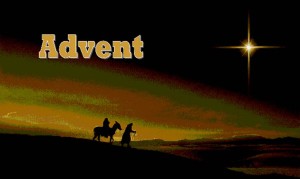 You might be wondering how are these readings supposed to help us get ready for Christmas? Well, they do this by reminding us that Advent is a time of waiting – a getting ready for the return of Jesus – not just a recalling of the first Christmas but a preparation for the fact that he will come again. So the focus for us at the start of each Advent is the invitation to prayerful taking stock of how ready are we, as individuals and as a church, to receive him however, wherever and whenever he comes to us.
You might be wondering how are these readings supposed to help us get ready for Christmas? Well, they do this by reminding us that Advent is a time of waiting – a getting ready for the return of Jesus – not just a recalling of the first Christmas but a preparation for the fact that he will come again. So the focus for us at the start of each Advent is the invitation to prayerful taking stock of how ready are we, as individuals and as a church, to receive him however, wherever and whenever he comes to us.
*************************************
Donal Neary S.J.
Gospel reflections
www.messenger.ie/bookshop.
Slow waiting
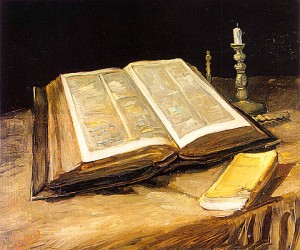
The four weeks of Advent are a slow wait: one candle this week, the empty crib. With Mary and Joseph we wait for Christ. The candles light the way for them – and for us, one each week of Advent.
Christmas should come quickly – the message of the ads. We could be excused for thinking it is nearly over. The Christmas parties are well under way. Some dinners for the elderly have been held already. The carols have been playing for weeks now.
The best waiting, like waiting for birth, is slow. Parents wonder about their child – who will he/she be like? The mother needs support and love; the children look forward to another baby; grandparents wait in pride. Even when the family situation is limited, we wait in joy and hope for the child – like Mary and Joseph, Elizabeth and Zechariah and all the bible parents who waited, often for many years.
How is my faith this year from last year? And what would I be asking for?
Would I promise anything to help me wait actively for Jesus
~Mass more often than Sunday,~ the Angelus every day,
~to read the gospel each day,~to be kinder and more just,
~ to care for the poor and needy at home or away in war torn or climate challenged countries.
Let my Advent bring me closer to God and effect for the best the lives of those close to me. If we wait in faith and in hope, then everything, even the carols being sung and the celebrations begun too early, can remind us of the God who is coming soon in Jesus Christ, to be born of Mary.
Mary, may l wait with you in joy, reflection, patience and hope.
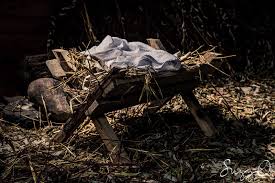
***********************************************